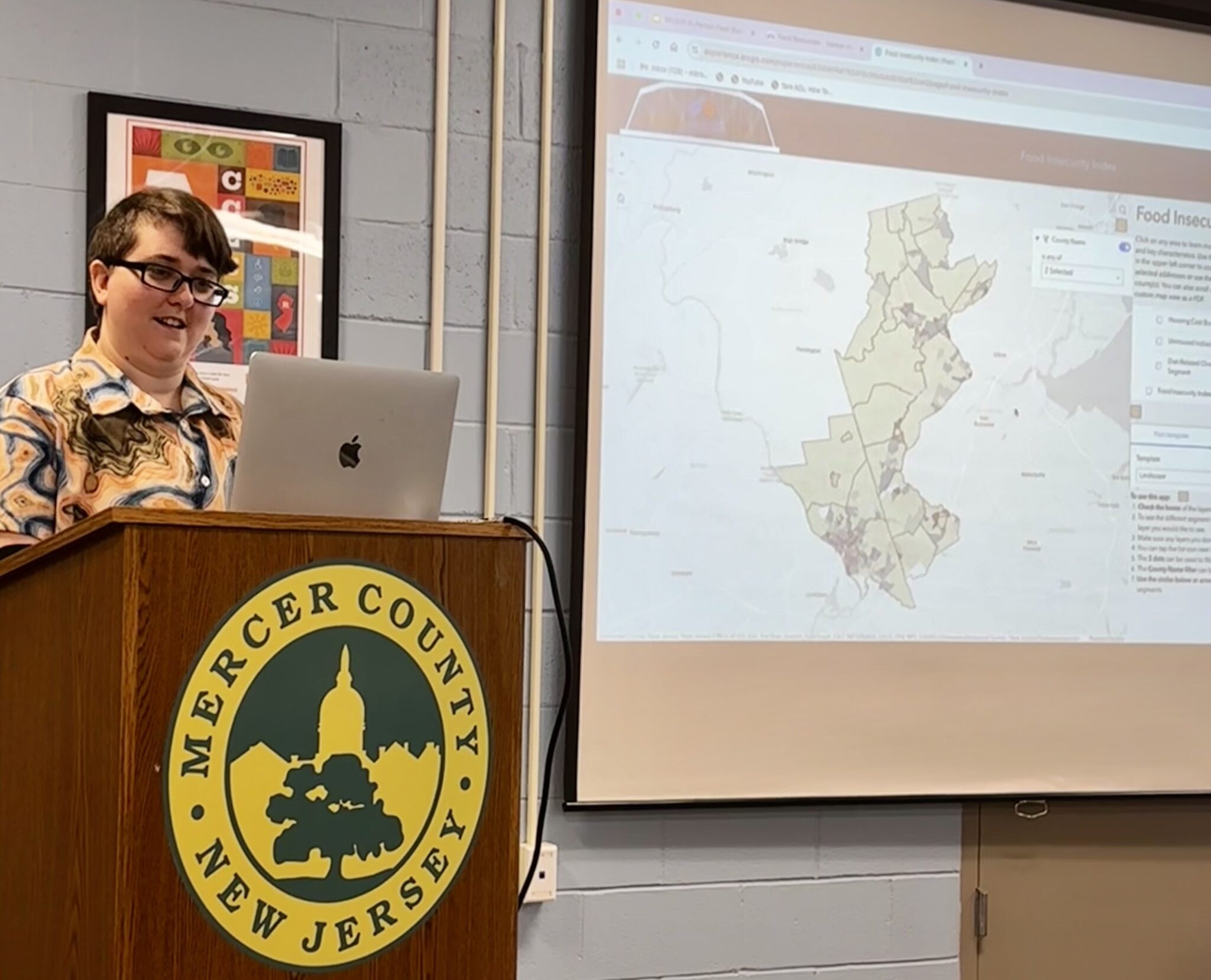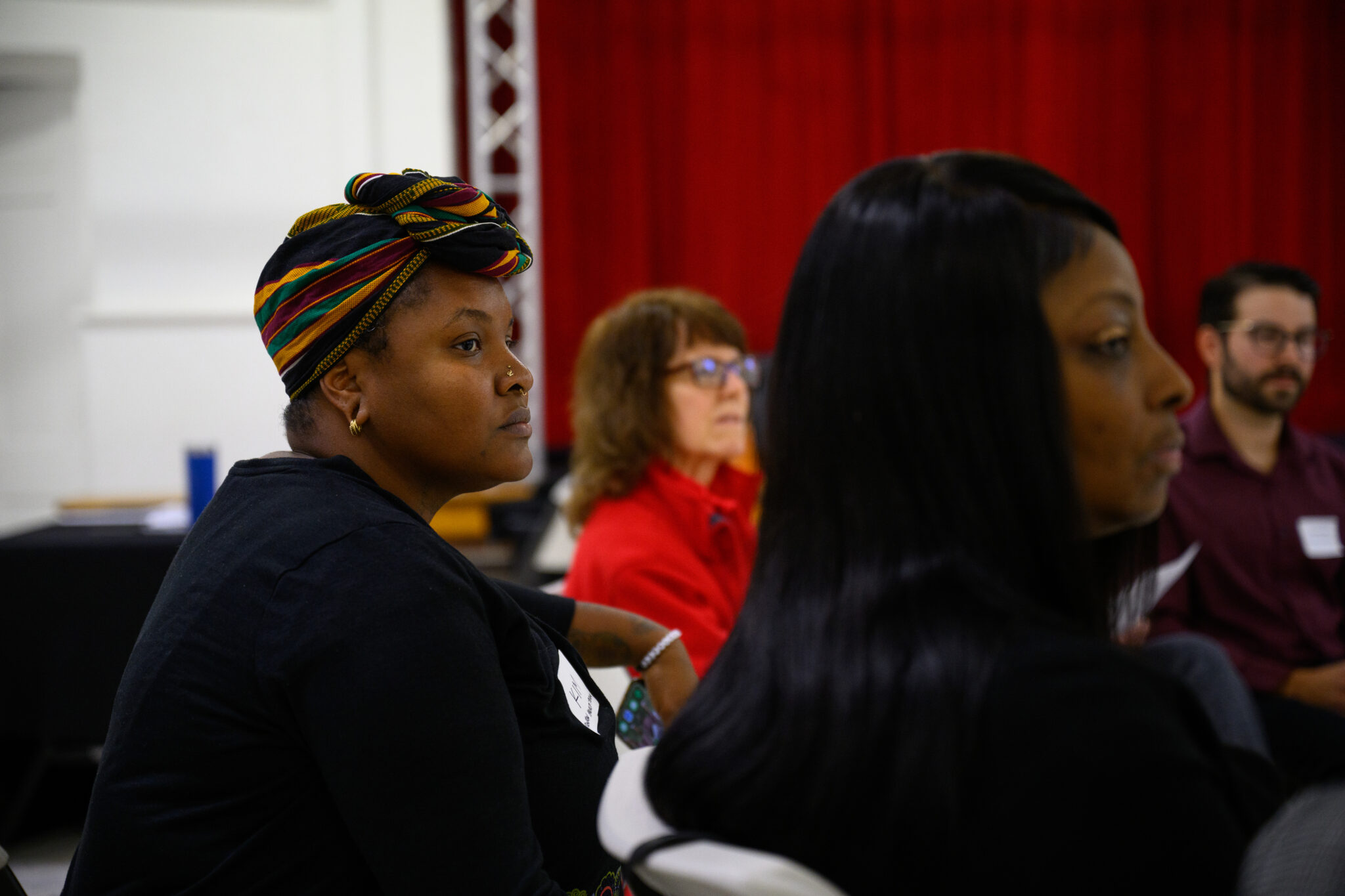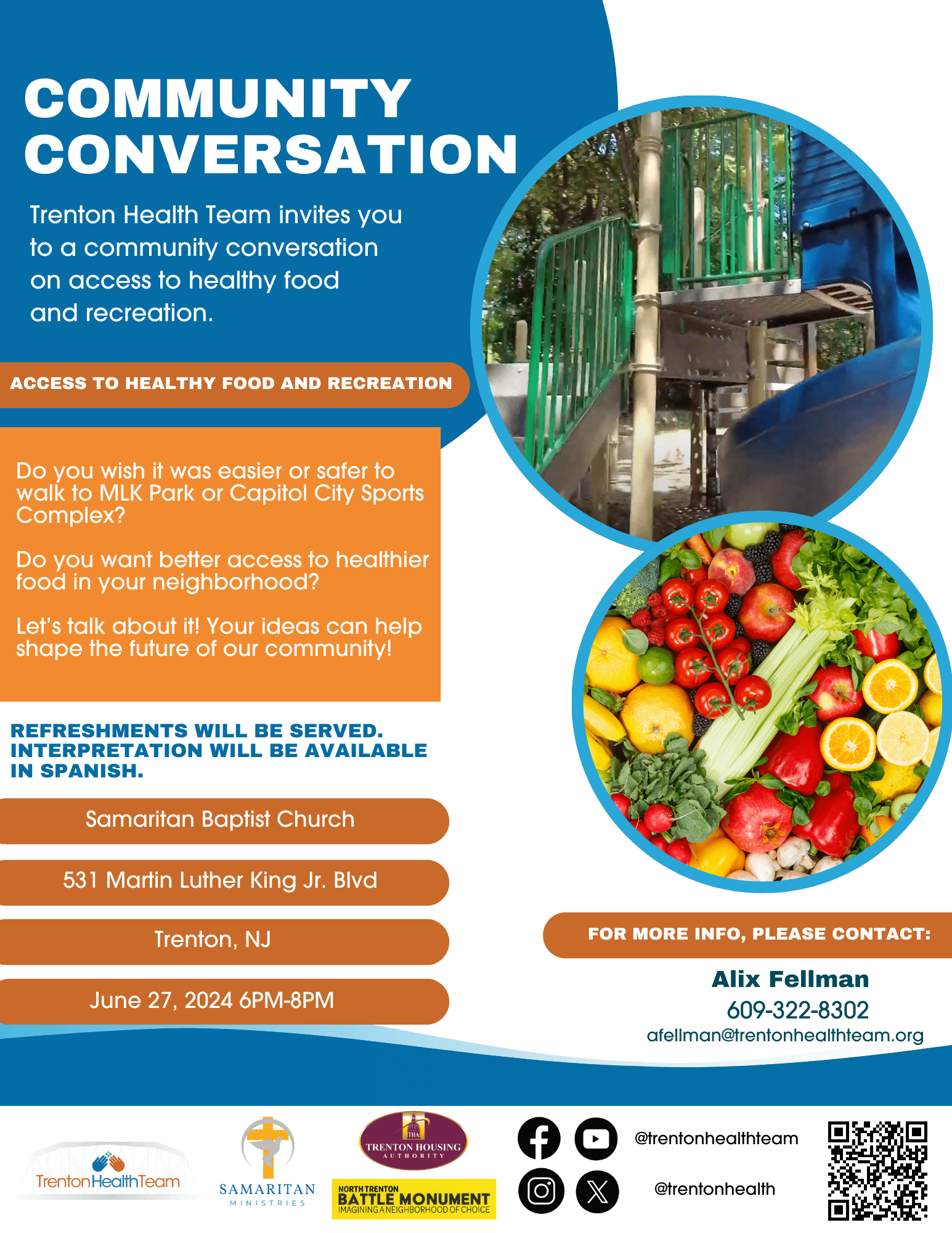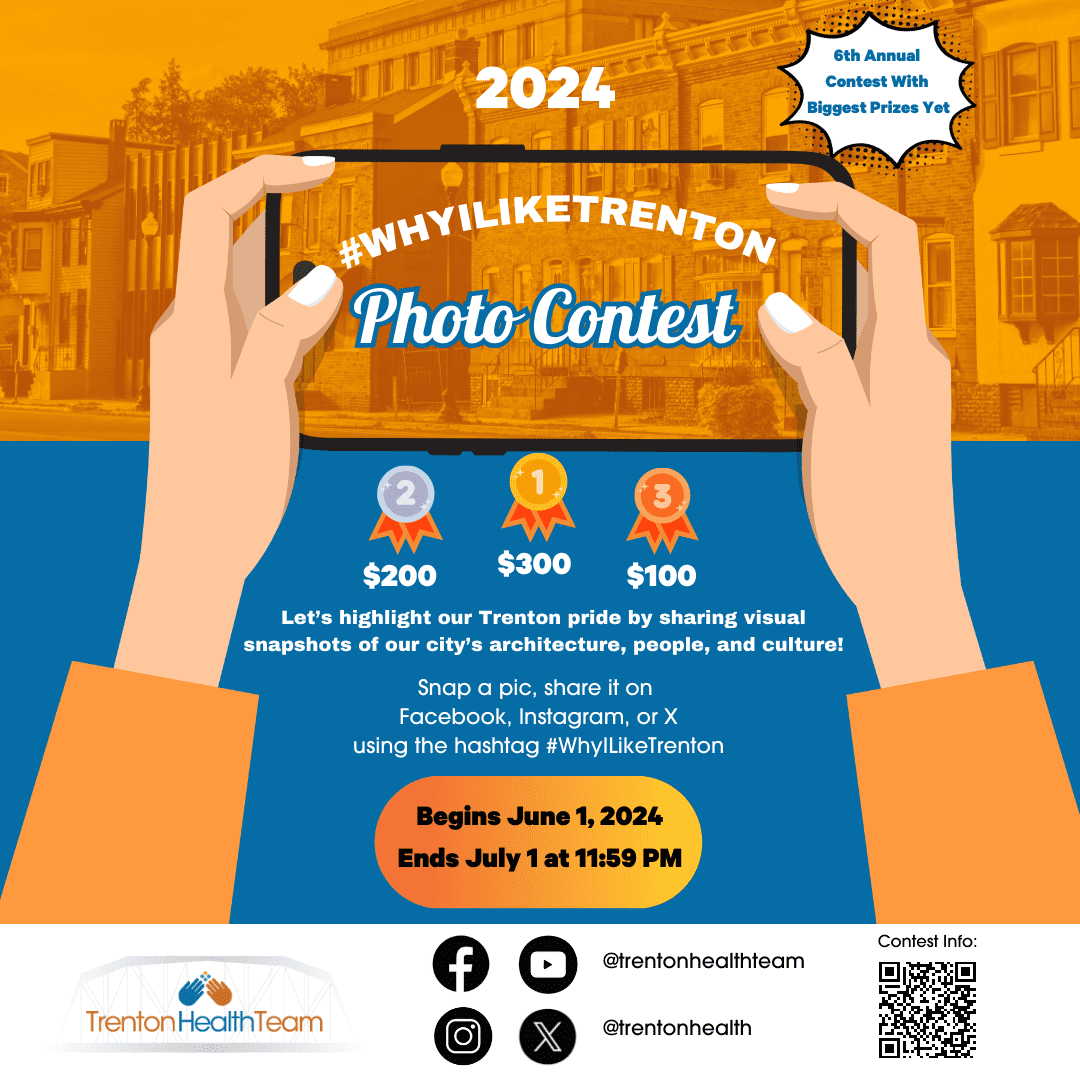NJCH Grant Funds Project Linking Redlining & Health Inequity
Trenton Health Team is proud to be awarded a $15,000 New Jersey Council for the Humanities (NJCH) grant supporting our effort to document and address the link between historical redlining in our City with inequitable health outcomes, such as the disparate impact of the COVID-19 pandemic.
NJCH today announced more than $202,000 in Incubation Grant awards to 15 organizations across the state for a wide array of humanities-based projects including public programs, exhibitions, tours and discussion groups.
The THT project, Divided in Health: The Legacy of Redlining on Health Outcomes in Trenton, will partner with Laura Poll, Archivist of the Trenton Free Public Library Trentoniana Collection, to assemble local examples of planning and housing decisions illustrating the history and context of decisions that fostered long-term economic and health inequity.
THT will combine interactive maps and historical material with present-day health data from the Trenton Health Information Exchange to identify and address social injustice and deepen our community’s understanding of cultural and historical processes that continue to affect the Trenton community.
Indeed, COVID-19 has increased awareness of the link between historical discrimination against communities of color and inequitable health outcomes. This project will build on lessons learned during the pandemic and apply a social justice lens to the cultural and historical decisions that continue to shape our region.
An interactive web platform will link the Home Owners Loan Corporation (redlining) map of Trenton from 1937 published digitally by the University of Richmond, as a base linked to other data and materials. Health data will be sourced by THT’s analytics staff from public sources such as the federal Centers on Disease Control and Prevention’s 500 Cities project as well as from the Trenton HIE, a health information data platform maintained by THT.
Health data will be reviewed against other historical information to draw correlations between Trenton’s history of disinvestment, ongoing health inequities, and the disproportionate impact of COVID-19 on the Trenton area’s predominantly Black and Latinx communities.










